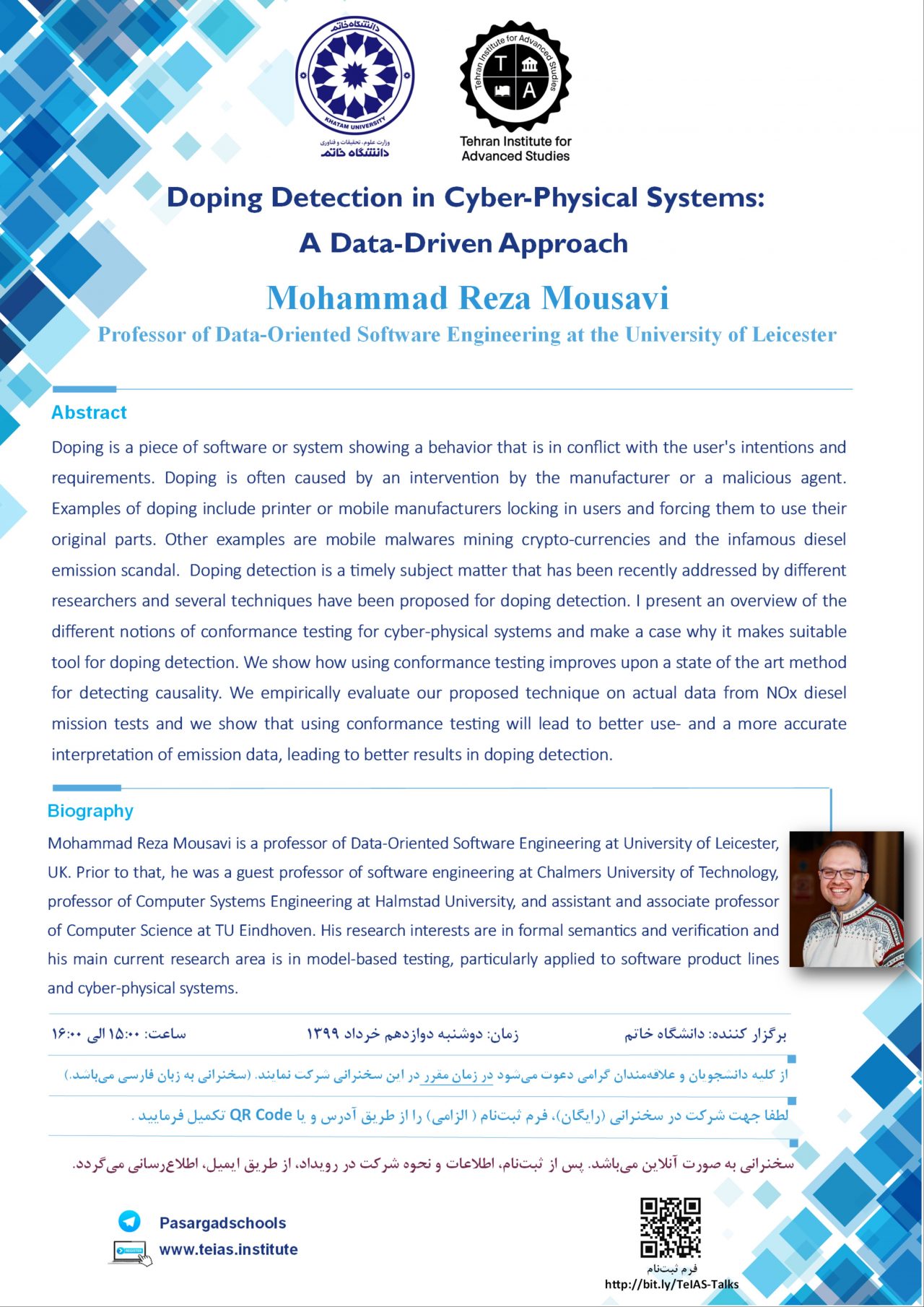
Dr. Mohammad Reza Mousavi
Professor of Data-Oriented Software Engineering at the University of Leicester
Overview
Doping is a piece of software or system showing a behavior that is in conflict with the user’s intentions and requirements. Doping is often caused by an intervention by the manufacturer or a malicious agent. Examples of doping include printer or mobile manufacturers locking in users and forcing them to use their original parts. Other examples are mobile malwares mining crypto-currencies and the infamous diesel emission scandal. Doping detection is a timely subject matter that has been recently addressed by different researchers and several techniques have been proposed for doping detection. I present an overview of the different notions of conformance testing for cyber-physical systems and make a case why it makes suitable tool for doping detection. We show how using conformance testing improves upon a state of the art method for detecting causality. We empirically evaluate our proposed technique on actual data from NOx diesel mission tests and we show that using conformance testing will lead to better use- and a more accurate interpretation of emission data, leading to better results in doping detection.
Biography

Mohammad Reza Mousavi is a professor of Data-Oriented Software Engineering at University of Leicester, UK. Prior to that, he was a guest professor of software engineering at Chalmers University of Technology, professor of Computer Systems Engineering at Halmstad University, and assistant and associate professor of Computer Science at TU Eindhoven. His research interests are in formal semantics and verification and his main current research area is in model-based testing, particularly applied to software product lines and cyber-physical systems.
